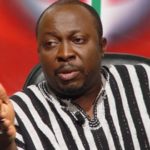About two years ago, I tried to argue for the information ministry to be scrapped. Like most of the things I say, it fell on deaf ears and no one seemed to take notice. After hearing deputy information minister threaten staff of the Information Services Department if they fail to portray government in positive light, a good number of enlightened Ghanaians are starting to wonder whether we need the Information Ministry. I am glad the debate is no longer just on the dark fringes of my mind and this blog, with the likes of John Ndebugri and Prof. Gyimah Boadi questioning the ministry’s existence. I hope it eventually leads to the folding up of one of the most useless and needless government agencies in Ghana today. Here is an encore presentation of what I wrote in October 2009. >>>
I learnt something recently in a training seminar. The teacher said “more warm bodies do not necessarily increase productivity and efficiency.” He was right and the inconsistencies of the government’s information management team provides ample evidence: five different people (in different parts of the national capital) doing a job that can very easily be done by one man and with no central control, very little direction and huge egos to be salved don’t exactly make for efficiency in communication management.
Now, even though I’ve studied communication, I must say that my knowledge in this field is very limited. But I think the mistakes of the Mills information team can very easily be addressed with a little bit of common sense. This, however, doesn’t work very well when a man’s hand is tired and he feels compelled to create jobs for his boys. That’s the problem facing the president now. It’s imperative, however, for the president to take control of the situation and deal with it in a creative, pragmatic and sensible manner.
- Advertisement -
First, there shouldn’t be a presidential spokesman and a director of communications at the presidency. The two positions should be merged. The president should take the bold decision to send either Mahama Ayariga or Koku Anyidoho home. At the very least, one of them should be subordinate to the other and we should know who is boss. I don’t care who presides over communications at the Castle and I don’t think it’s the president’s job to salve the ego of either men. Being a president sometimes means bruising a few egos and if that needs to be done to make the government information management more efficient so be it. The president cannot blow hot and cold over this matter. Something simply has to give. Otherwise, the consequences will be more than he can manage.
Secondly, I think that one of the most radical decisions the president needs to take to streamline government information management is to close down the information ministry and tell that bimbo at the helm of affairs there to take a walk, possibly to go manage her beer bar. When the information ministry has been closed down, all major policy statements should either come from the presidency or the PR departments of the various ministries, duly sanctioned by the sector minister.
We should also gradually move towards a situation where the president regularly speaks to his citizens and field questions from the media on all issues of national importance and public interest. No Ghanaian president can tell me that he is busier than his counterpart in the United States. Yet Barack Obama makes time to announce his nominees for top positions, explaining how he arrived at certain important decisions. He even makes time to occasionally crack jokes and speak about petty stuff like his favourite football team’s performance and his dog.
Ghanaians want to know what their president is thinking but not through a different human being. The president is not the Holy Ghost, who needs a human vessel to speak in tongues. We want to hear from our president as often as possible. The tokenism of presidential ‘media encounters’ – sometimes once in a year – is so not 21st century. The president should engage the citizens more, talk to us regularly – speak for himself, assure us, allay our fears and make his say-so the final word on any issue.
Whether the president chooses to speak to us directly and regularly, whoever is put in charge of communications at the Castle (who should also be the designated presidential spokesman) should organise daily press briefings where he will field questions and answer them on behalf of his boss. When he speaks we will take it as the president speaking through him. This means that this presidential spokesman will not open his mouth to speak on any issue unless he’s received a briefing from the president.
From Kufuor’s time till date, people purporting to be speaking on behalf of the president have often just waffled and rattled anything that came to their minds without having spoken to their bosses. The fact that the president called Joy FM to complain while his spokesman was speaking on the same network (supposedly on behalf of the president) was a shameful demonstration of the fact that the two men hadn’t spoken to each other that morning. The president and his spokesman must constantly speak with each other and when the spokesman doesn’t know his boss’ opinion on any matter, he shouldn’t be ashamed to say “I don’t know…”
Apart from the presidency speaking on all major policy statements, the various ministries have their own PR departments. They should be able to communicate government information without contradicting what the presidency has said and there shouldn’t be any occasion when one will come out to clarify what the other has said. This is not to say that the PR departments of the ministries should constantly look up to the presidency before communicating with the public. They should be able to draw up and work with their own communications strategies. For example, if government decides to build a nuclear reactor the announcement could come from the presidency whiles the Energy Ministry provides further details.
Strengthening the PR outfits for the various ministries would also mean that ministers of state should be mindful if when and how they grant interviews. Some of them grant interviews ‘by heart’ on early morning radio when they had not even brushed their teeth. This must stop. Ministers should carefully choose where they get interviewed, when and how and such decisions should hardly be made without consulting their PR departments. Speaking to a minister of state should qualify as an ‘exclusive’ for any media house – but not in this country, where ministers just pick calls from any radio station and waffle on end, sometimes while lying comfortably (I’ve sometimes supposed) in the bosoms of their concubines or even in the loo. In such instances, the minister should quite gently tell the journalist to sod off whiles he concentrates on the ‘concubinal bosom’ or whatever is engaging his attention. Better yet, he could tell the newsman to call his PR director, who should be able to provide the journalist with the information required.


